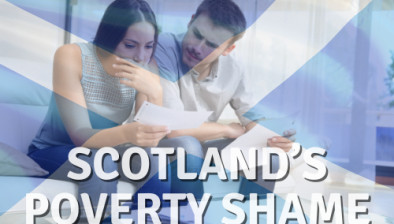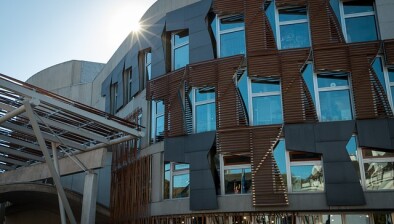New welfare cuts will cause increase in debt and homelessness, housing sector warns

Westminster’s plans for a fresh round of welfare cuts, dubbed ‘Bedroom Tax 2’, threatens to undermine housebuilding projects, increase homelessness, and weaken public sector finances across Scotland, it has been claimed.
According to The Herald, payments to help tenants meet their social housing costs will be capped by the UK government for the first time with younger renters facing cuts to their housing benefit of up to one quarter.
Critics have branded the new cuts “contrived and highly punitive” amid warnings they will “cast a huge shadow” over the vital housebuilding programme to create 50,000 affordable homes across the country in the coming years.
Leading housing sector professionals branded the changes as ‘Bedroom Tax 2’ and warned that the “vindictive” tax would hit the poorest and most vulnerable and would lead to an increase of people being forced to live on the streets.
Under the Department of Work and Pensions (DWP) proposals, tenants of council or housing association properties will no longer receive payments that exceed the rate of housing benefit paid to those living in private landlords - the so-called Local Housing Allowance (LHA).
But single tenants under 35 with no children will see their benefits limited to the ‘shared accommodation rate’ (SAR) which is much lower than the average for one-bedroom properties.
It means that a younger tenant in Glasgow who would normally be entitled to £92.06 under the current system, will receive £68.28 in housing benefit.
In Renfrewshire, where the one-bedroom rate of LHA is £80.55, the tenant would now be entitled to £60.
It is feared the move, due to be launched in spring 2019, will fuel a rise in rent arrears and stymie housebuilding in Scotland.
The proposals mirror the DWP overhaul of the private rented sector and have been described as a more “irrational cut than the bedroom tax”.
Already it has been claimed from within the social housing sector that with even just a small number of families currently receiving Universal Credit the level of arrears spiked in 2016.
Fraser Stewart, director of the New Gorbals Housing Association, told The Herald: “This policy seems to be designed to actually cause crisis in the lives of some of our most vulnerable citizens, and we will all pay for costs of the resulting insecurity and homelessness.
“The very small short term reduction in cost to our welfare budget will be dwarfed by the immediate and very long term consequential rise in cost in health and other services.”
The body for community-controlled housing associations in west central Scotland said the impact of the changes would be most acute for new build schemes coming after April 2019.
With new build rents normally higher, the Glasgow and West of Scotland Forum of Housing Associations (GWSF) said with potentially a third of prospective new tenants single, under 35 and on benefit, the shortfall, and therefore the arrears, would mount very quickly.
Maureen Cope, chair of GWSF’s campaign group, said: “This is a contrived and highly punitive cut. The DWP is effectively saying to tenants under 35 ‘we know you can’t share your one-bedroom flat but we’re still only giving you the sharing rate of benefit’.
“It’s is an even crazier, more irrational cut than the bedroom tax. In the private rented sector younger people have always expected to share a flat.
“But council and housing association housing has never been used that way. Unrelated households have never shared their home, and in any case the tenancy system in social housing doesn’t even cater for flat sharing.
“These cuts cast a huge shadow over the Scottish Government’s housebuilding programme. It means that through no fault of their own, younger tenants will start building up arrears from day one. All the signs are that the Scottish Government simply won’t be able to find yet more money to mitigate this.”
Graeme Brown, director of Shelter Scotland, added: “We fought as hard as we could against the vindictive bedroom tax and made it clear to all that it had no place in Scotland.
“The Scottish Government has so far been able to mitigate most of the impact of the bedroom tax, but if these changes are introduced in their current form, the effect will be even more profound and much harder to contain. As before, the same target will be hit, the poorest and most vulnerable people in our society.”
A DWP spokeswoman said: “These changes are about restoring fairness to the system and ensuring that those on benefits face the same choices as everyone else. The reality is, nothing will change until April 2019, and existing tenants will be unaffected.
“We will have provided £1bn in Discretionary Housing Payments across Great Britain by 2020 to support people transitioning to our reforms.”








